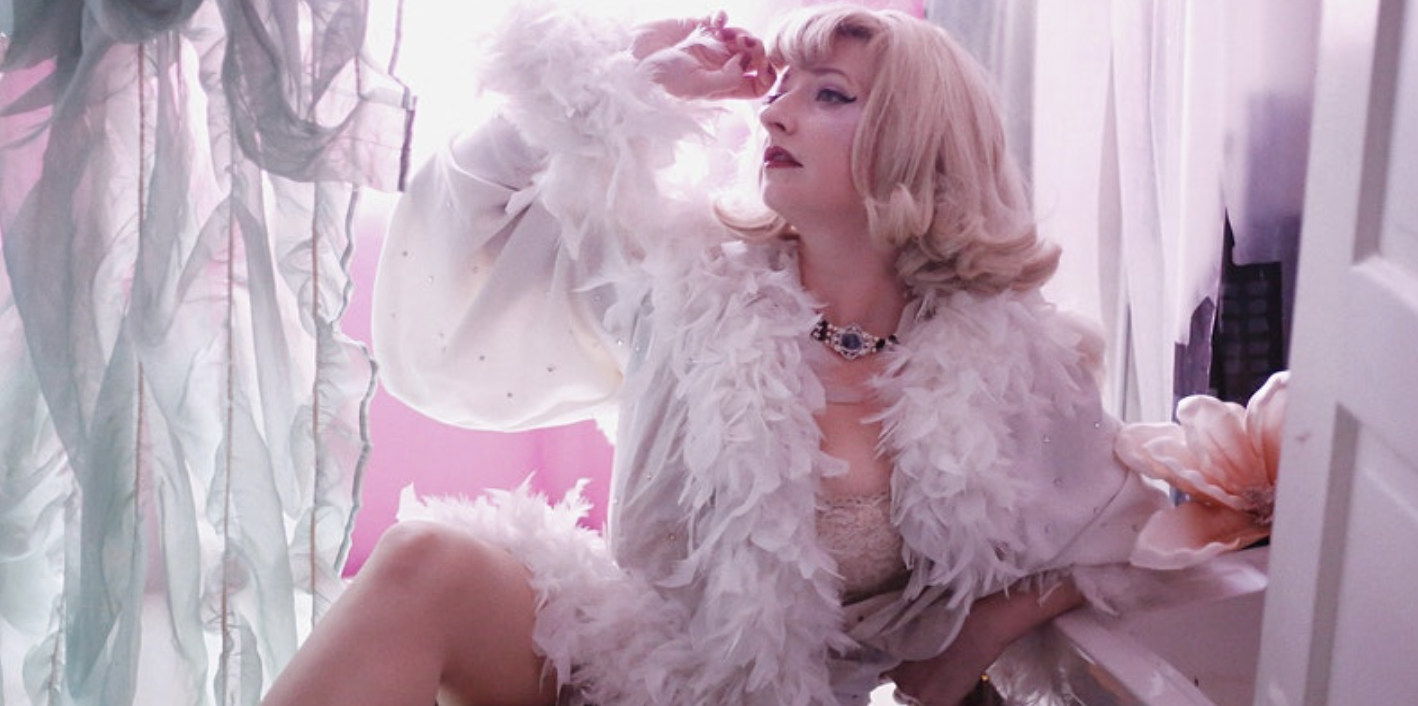|
Welcome to the Peep Seats
It’s a challenge - in New Orleans, at least - to bring innovative, theatrical zeal to Tennessee Williams’ most famous work, A Streetcar Named Desire. However, that’s exactly what panoramically-versatile local performer, Lefty Lucy, is aiming for with her upcoming production, A Peep Show Named Desire. We catch up with her as she’s pasties-deep into rehearsals with her four-person cast and assorted crew, and as opening night approaches, her excitement is palpable. What started out as a quasi-theatrical showcase at the Tennessee Williams Theater Festival in Provincetown last year has blossomed into what promises to be a dazzling, full-scale production. “The show (in Provincetown) wasn’t fully realized,” she says, “But even so, it was gangbusters. It sold out, got great reviews and I was validated as a person and as an artist in a way I didn’t even know I could be.” “A performer who I really respect saw the show and said that she didn’t realize how powerful burlesque could be until then. She said that she had to reassess what she thought of the art form! That’s a recommendation I’m going to be quoting for the next thirty years!” That’s quite the inspirational review, but while most people might be tempted to rest on their Spanish Moss-fringed laurels, Lefty has spent time developing the script and adding musical numbers to arrive at this brand new evolutionary stage of the show. “We have a scenery designer (Destany Goram) and a costume designer (Xena Zeit-Geist), and a whole crew…it went from scrappy burlesque show to (adapts dramatic personae voice) legitimate theater!” Lefty enthuses about the team, and it’s clear that the process of having additional people working on the show is elevating her own artistic reach.“There are things that people are bringing to (the show) that I didn’t even imagine.” she says, “Simply because they’re not me, and that’s so wonderful!” “I’m excited to be hiring Lauren Turner (director) and Amara Skinner (production manager), and just letting them do their job.” A real life case of teamwork making the dream work? “Yes! You CAN do everything yourself but you might not do it well.” As we talk more about the show’s format and content, it becomes clear that there’s more to it than a bawdy romp through Williams’ world. “Perspective is a key part of this show,” says Lefty. “I’d kind of avoided Blanche DuBois, but to do that is a disservice to the character and women as a whole. Also, with her character, Williams is also acknowledging in the way he could, that these perspectives (of oppression) exist. I can only bring my perspective as a white woman to this show, but that’s not the only story being told.” The other cast members (‘The Birdies’ and a vocalist, Jessica Mixon) are all black women, and Lefty tells us that they’re being very conscientious. “Through this casting and staging, hopefully we can relate a broader spectrum of experience. There’s lots of layers to these Williams plays,” she says. The basic structure of the show is classic vaudeville, in that it has music and comedy and burlesque. “The joy of this show is that you can decide who the star is,” says Lefty. “If you relate to the comedy, for example, the burlesque is the palate cleanser. There’s puppetry and a reverse striptease and an escape act. The vocalist is singing songs that are powerful and significant on their own, and embody Blanche’s experience. But everything hopefully reflects that Blanche’s experience isn’t unique to her. If you walk out thinking Lefty was fine but I loved the vocalist, or those two Birdies had me rolling, that’s great! I’m riding a high tide that raises all ships.” It’s an attempt to tell a story that’s familiar to audiences but in a way that they haven’t thought of before. The show starts before Streetcar begins, and it ends after Streetcar finishes. “It’s inspired by a quote from Tennessee Williams,” she says. “An actor in the UK cast asked him ‘What happens after curtain?’ and he said ‘Blanche seduces orderlies in the asylum, and then she gets out and opens a boutique in the French Quarter’ - it’s important to note that Blanche is the only heroine of Williams that he didn’t let end in tragedy. I see her as such a survivor and a fighter.” There’s also an interpretation that Williams was using the character of Blanche DuBois to talk about his own experiences as a gay man in the 1940s. “Tennessee Williams was supposed to be at the top of society but he had to hide some of his character,” Lefty says. “There are structural implications. Blanche DuBois has all the trappings of privilege, but she’s called ‘crazy’ and ‘a whore’ and ‘manipulative’, so if she’s thought of this way, what hope does anyone have? These structures don’t work for anyone, they isolate people to keep us weak. We’re all harmed by them.” It seems like the show has everything from the glamor of burlesque through tragi-comic humor to incisive illustrations of the ways that society traps us. “I’d say that this show is a comedic striptease romp that you can have the time of your life at, or you can be haunted by it for the rest of your life and you can do something to change things!” It’s hard to imagine not finding something in that description to latch on to. In the meantime, people of New Orleans can prepare to board a multi-layered, brand new ‘Streetcar’. A Peep Show Named Desire runs at The AllWays Lounge, from May 6th-9th. More info and tickets here. More features Comments are closed.
|
UP ALL NIGHTEven more distractions. Probably NOT SAFE FOR WORK! Archives
September 2022
Categories |

 RSS Feed
RSS Feed